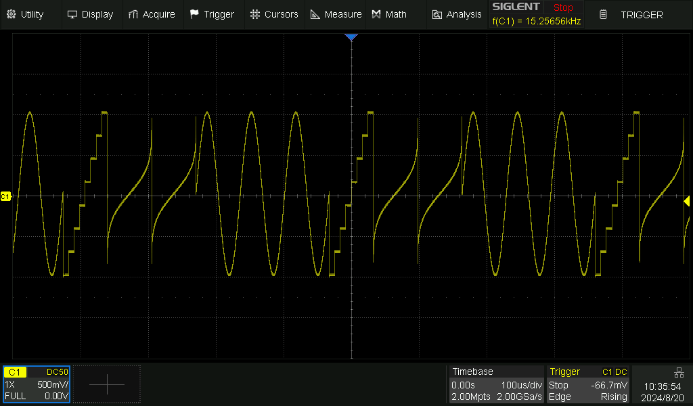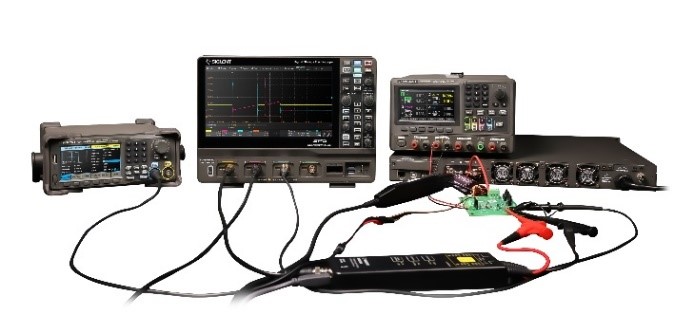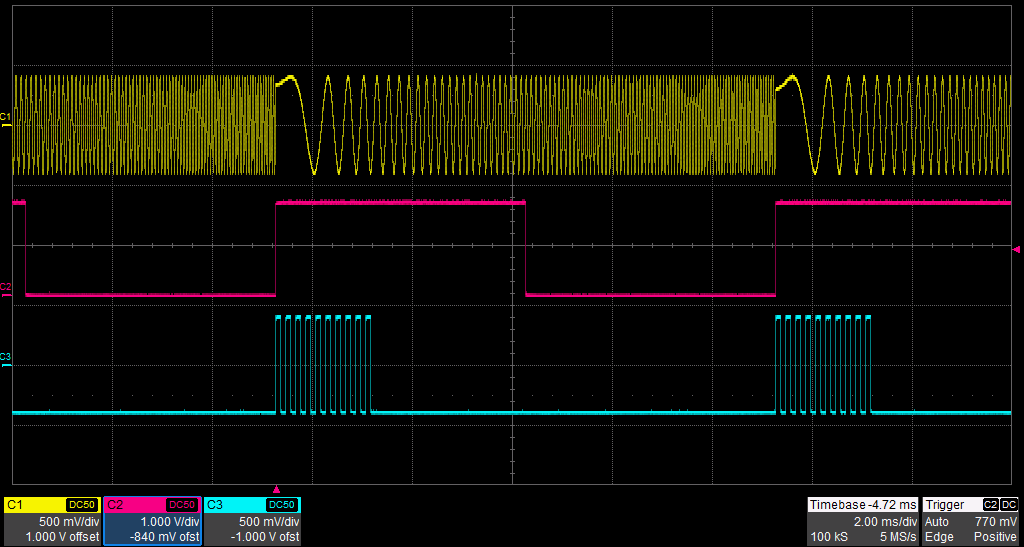Siglent’s new Function/Arbitrary Waveform Generator SDG1000X Plus
November 11, 2024
Siglent released the SDG1000X Plus series Function/Arbitrary Waveform Generator, providing engineers with a more flexible and efficient signal generation solution. This series offers a maximum output frequency of 60 MHz, 16-bit vertical resolution, 1 GSa/s sampling rate and 8 Mpts arbitrary waveform length. With PRBS pattern output up to 40 Mbps and multi-pulse output modes, it is ideal for Double Pulse Testing of power devices.

High-performance Sampling System
High resolution and sampling rates are critical for accurate signal simulation and analysis. The SDG1000X Plus series offers a high-performance sampling system with 16-bit vertical resolution and a 1 GSa/s sampling rate, delivering precise signal details and ensuring high fidelity. It is well-suited for applications requiring accurate signal generation, such as the development and testing of communication equipment. 
8 Mpts/CH Arbitrary Waveform
The SDG1000X Plus supports 8 Mpts of waveform memory, enabling the generation of long-duration, complex modulated signals for high-precision testing. It accurately simulates modulated signals and pulse sequences for modern communication systems, ensuring system performance. It is also suited for high-speed chip testing in the semiconductor industry, where precise timing and amplitude control are critical for achieving test accuracy. Furthermore, researchers in the biomedical field can utilize it to simulate complex bioelectric signals, advancing the study of electrical signal transmission in living organisms and facilitating the development of medical devices.

Ideal for Communication System Testing
The SDG1000X Plus offers PRBS pattern output ranging from PRBS3 to PRBS32, generating high-speed pseudo-random binary sequences (PRBS) with bit rates from 1 μbps to 40 Mbps.It is ideal for testing high-speed serial communication systems. Whether testing protocols such as Ethernet, USB, or HDMI, the SDG1000X Plus can simulate real-world communication environments, allowing engineers to identify potential issues. With built-in logic level support for TTL, LVCMOS, and other standards, it easily generates differential signals, making it particularly suited for applications requiring high common-mode rejection ratios. 
Double Pulse Testing for Power Devices
The SDG1000X Plus incorporates multi-pulse output functionality with rise/fall times as low as 10 ns. Each pulse can be individually configured, allowing engineers to generate precise gate drive signals and measure switching parameters and dynamic characteristics of power devices. This functionality significantly enhances the testing efficiency and accuracy of power devices such as IGBTs and MOSFETs. 
Other Functions
Sweep and Burst Modes:
The SDG1000X Plus offers both linear and logarithmic sweep modes, as well as N-cycle and gated burst modes.With three trigger sources (internal, external, and manual), users can quickly adapt the settings to suit their testing environment, enhancing workflow efficiency.

Comprehensive Modulation Capabilities:
The SDG1000X Plus series support a wide range of analog and digital modulation types including AM, DSB-AM, FM, PM, ASK, FSK, PSK, and PWM, it covers applications from audio signal processing to wireless communication. Engineers can easily integrate external signal sources for modulation, accommodating complex testing requirements.

Webserver Remote Control:
The built-in Webserver function offers engineers a convenient way to remotely control and configure the instrument via a network, simplifying testing workflows, particularly in environments that require frequent parameter adjustments.

The SDG1000X Plus series integrates many features that were previously available only in higher-end products, delivering high-precision, high-performance testing capabilities at a lower cost. For engineers seeking a versatile solution for a wide range of test scenarios, this device is an efficient and cost-effective choice, significantly improving test efficiency while reducing R&D and debugging costs.
